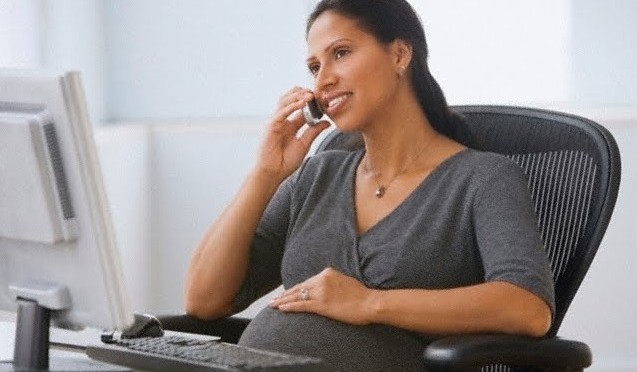In recent times, there has been a large amount of focus on discrimination waged against certain classes, particularly the LGBT community and certain racial groups. But while it may not be as widely discussed, many Americans also face discrimination during a very important part of their lives… pregnancy. What is should be a joyous time in a woman’s life is all too often one of the most dangerous situations for their professional career, as many employers have a long history of discriminatory practices against young mothers and mothers-to-be.
But a big move by the nation’s highest court will bring pregnancy discrimination into the national focus over the next year. Here’s more from the Houston Chronicle (via AP)…
WASHINGTON (AP) — The Supreme Court is taking up a pregnancy discrimination case with the potential to affect many American women who continue to work throughout their pregnancies.
The case before the justices Wednesday involves a former driver for United Parcel Service who wanted a temporary assignment to avoid lifting heavy packages after she became pregnant in 2006.
UPS refused to accommodate driver Peggy Young, who did not return to work until two months after she delivered her baby.
The court is weighing whether the company’s actions violated the 36-year-old federal Pregnancy Discrimination Act.
Young says she should have been offered light-duty work because some UPS workers were.
The Atlanta-based package delivery company says it will voluntarily offer pregnant women light duty starting in January. But the company contends it complied with the law in Young’s case.
The question at the Supreme Court is whether UPS was required to accommodate Young, 42, because it gave temporary assignments to some workers, including those who were injured on the job or had a condition that was covered by the Americans With Disabilities Act.
[…]
The U.S. Chamber of Commerce is among those on UPS’ side. The chamber says many of its members do provide additional benefits to pregnant workers, but says policies at thousands of companies would be upended if the court were to rule for Young. Lower federal courts have rejected her claim.
Since the justices agreed in July to hear the case, the Equal Employment Opportunity Commission updated guidance to employers to make clear that they should accommodate people in Young’s situation. Yet the U.S. Postal Service, an independent federal agency, maintains the practice that UPS has now abandoned, UPS said in court papers. The Postal Service declined to comment.
So while the Obama Administration has done more to protect pregnant with strengthened EEOC guidelines, a SCOTUS decision favoring the plaintiff could cause a landmark shift in the way companies treat pregnant employees.
Barring potential outcomes of the court case, there are still many state and local protections that go above those outline in the Pregnancy Discrimination Act. When Houston City Council passed the Houston Equal Rights Ordinance earlier this year, pregnancy was included as one of the protected classes to combat discrimination in the workplace, housing and public accommodations. This ordinance not only clarifies that discrimination is illegal in Texas’ largest city, but also gives Houstonians increased accessibility to file discrimination complaints. And despite any of the copious lies out there, the Houston Equal Rights Ordinance does NOT allow men to enter women’s bathrooms!! Not a part of this law in any way.
HERO faces its own court challenge January 19th to determine whether the new law will be forced to face a recall. Meanwhile after hearing the case today, a SCOTUS decision isn’t expected until June.
